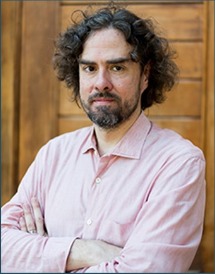讲座主题:受事性边缘处的论元实现和体态
主 讲 人:John Beavers 教授(德克萨斯大学奥斯汀分校)
讲座时间:2023年6月15日(周四) 8:30—10:00
腾讯会议:419-435-439(届时提供讲义下载)
内容简介:
此次讲座的主题是“受事性边缘处的论元实现和体态(Argument Realization and Aspect at the Boundaries of Affectedness)”。受事性描述的是事件进行过程中事务的变化程度,是动词系统研究的重要内容。Beavers教授是该研究领域的专家,此次讲座中他将讲述自己在这个话题上的最新研究成果。
Affectedness - the degree to which something changes in an event – has been an important part of the study ofverb, figuring into work on aspectual classes and argument realization, almost universally centered around the key notion of affectedness giving rise to inferences of a new state for some patient. However, recent work has shown that change can occur in an event without leading to a new result state, as with motion along a circular path or languages that allow non-culmination for accomplishment predicates. I tentatively propose a way to integrate these factors into a broader theory of affectedness in a way that still matters for argument realization and aspect. For the former I focus on English dispositional middles, which I suggest are sensitive to change-of-state in apredicate's meaning even if not realized, and for the latter I show that a theory that takes change without a new result state into account correctly predicts more types of aspectual classes than usually acknowledged. Thus while it is not true that affectedness is fundamentally rooted in inferences of new result states, it is still asemantically principled and grammatically relevant notion.
主讲人简介:

John Beavers,教授,任职于美国德克萨斯大学奥斯汀分校语言学系,斯坦福大学博士。其研究方向为词汇语义学。
John Beavers is a Professor in the Department of Linguistics at The University of Texas at Austin. His research areas are formal syntax and semantics, lexical semantics, and linguistic typology. He is primarily interested in the nature of word meanings, including how word meanings are decomposed into more basic semantic primitives, how these primitives are interpreted truth conditionally, and how a word's meaning correlates with and ultimately determines its grammatical behavior. His research is specifically focused on verbal semantics and the linguistic representation of events.
